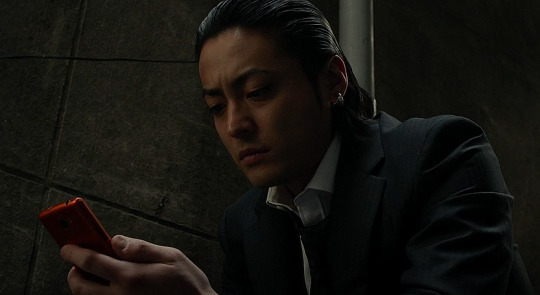#shinjuku swan
Text
NEW KEN WAKUI SKETCH INCLUDED IN THE SPANISH EDITION OF SEKISEI INKO’S VOL. 1
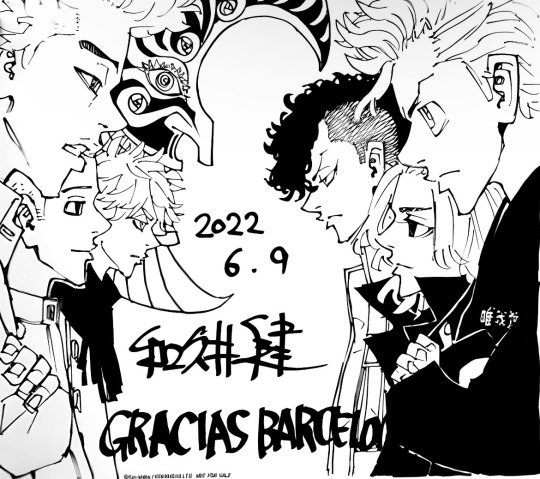
#ken wakui#shinjuku swan#sekisei inko#tokyo revengers#tokyo revengers x reader#manjiro sano#takemichi hanagaki#mikey sano#toman
663 notes
·
View notes
Text
yamada takayuki in shinjuku swan is the epitome of the saying : if villain is bad, why hot? link to tiktok post
#Yamada Takayuki#Takayuki Yamada#Shinjuku Swan#japanese movie#jmovie#Japanese actor#anime#manga#by me#mine
6 notes
·
View notes
Text
Ken Wakui's Astro Royale Makes Its Debut in This Week's Weekly Shonen Jump
Ken Wakui's Astro Royale Makes Its Debut in This Week's Weekly Shonen Jump. And a Surprising Similarity to Saturday AM's Apple Black.
#願いのアストロ #東京卍リベンジャーズ #TokyoRevengers #Manga #AppleBlack #SaturdayAM
It’s a new week, and with it starts a brand-new adventure! This year’s Weekly Shonen Jump magazine’s 20th issue starts a thrilling new tale filled with gangs and superpowers! Ken Wakui takes Yanki Sci-Fi to another level with Astro Royale (Negai no Astro).
Astro Royale was first announced in this year’s Weekly Shonen Jump issue 19, along with two familiar creators starting a new series as well.…
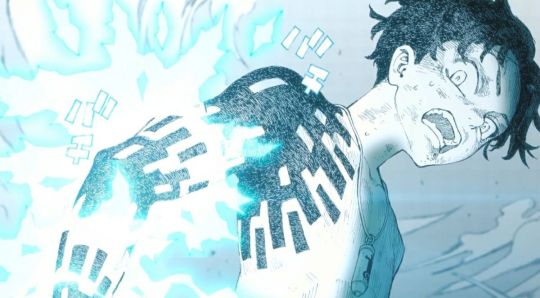
View On WordPress
#Apple Black#Astro Royale#fiction#Ken Wakui#Manga#Manga Plus#Negai no Astro#Saturday AM#Sci-Fi#Shinjuku Swan#Shueisha Inc#Superheroes#Tokyo Revengers#Viz Media#Weekly Shonen Jump#Yanki
0 notes
Text

The last Amano
1 note
·
View note
Text
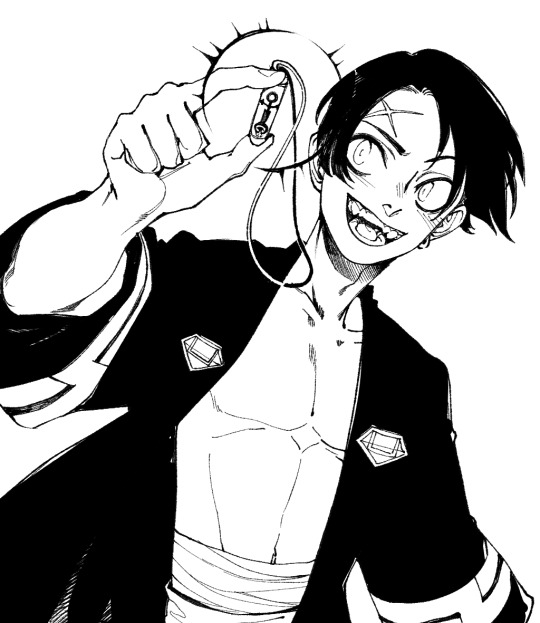

I really liked the first chapter of astro, I'm not normally into the whole shounen magic power battle stuff but I love Wakui's art style enough to read basically anything by him lol
#reminder to myself that i still gotta get into shinjuku swan...#negai no astro#yotsurugi hibaru#yotsurugi terasu#for people who've read the english version is it spelled terasu?? or some other fancy spelling#because it's implied he's not japanese but i've only seen it spelled in katakana so
150 notes
·
View notes
Text
fic excerpt: goro and his mother
I keep needing to refer to this one, so here it is. WARNINGS for childhood abuse (poor, poor Mamakechi is not at her best here).
* * *
The summer Goro turns six, his mother packs their few things into plastic laundry bags, and she ties up their futon and quilt with string, and the two of them leave their single room in Shinjuku for a single room some way to the east, in a place called Yoshiwara. Asakusa and the huge red lantern of Senso-ji Temple are nearby to the south, but Goro and his mother don’t live anywhere so rarefied.
The other rooms in the house hold students, casual workers, foreigners. Goro peeps out of their door to talk to them all. Some ignore him, and he ignores them in return. Others are nice—the older boy who lends him manga, the girl who gives him sweets and ties ribbons in his hair, the foreigners whose words he only sometimes understands. And then there’s the old lady who lives on the top floor by herself.
Her name is Migata-san. She has her own kitchen and her own bathroom, when the rest of them have to share, just like in Goro’s old home. She wears a puffy, quilted vest all the time, and sits in front of her TV. Goro doesn’t have a TV any more; in the winter his mother took it away and it never came back. And since the landlord—who is strident and impatient and everything Migata-san is not—shouts at him when he sees him, Goro often finds himself creeping straight upstairs to Migata-san’s tiny apartment.
His mother leaves him there every afternoon anyway. He reads anything he can find, or takes his borrowed manga, or he sits in front of the TV, and Migata-san feeds him riceballs and cake. The TV rotates through daytime dramas, talk shows, adverts and news, but when something good comes on, Migata-san will let him watch it. Fly, Feather Swan! No, Grey Pigeon, I won’t forgive you!
“I could do that,” he tells Migata-san, watching the Feathermen fly about against a painted-looking stormy sky, and she laughs at Goro while he scowls.
“Oh, no,” she tells him, in the stupid grown-up voice. “Those things only happen on television. How about some milk?”
He accepts the milk, still sulking. But he doesn’t drop the idea.
* * *
When his mother finally comes home in the evenings, she’s tired and seems sick; things aren’t like they used to be. Instead of talking to him while she makes soup and rice over a tiny electric ring, she brings frozen boxes from the konbini and puts them in the microwave. They eat side by side in silence, sitting on the rolled futon.
Goro eats his frozen curry steadily, glancing sideways to his mother. She’s picking at her food like she doesn’t want it. “Why are you sad?” he dares to ask, afraid of upsetting her.
His mother doesn’t look at him. “I’m not sad, Goro-chan. Eat your food.”
He looks back to his bowl. The curry is bright orange. He picks some into his mouth: little red chopsticks, with the rubber grip holding them together. It tastes of a lot, but he doesn’t complain, not when she’s sad.
Are we going home soon? He can’t ask her that, either. He tries to think of something to tell her, making his slow way through his curry. Nothing that will make her lonely. Nothing that will make her cry. Nothing that will make her—
“I’m going to be a superhero,” he says brightly.
She glances to him. She looks right into his eyes and she smiles. “Is that what you’ve been doing today?”
“Mm-hm,” he tells her, riveted to that tiny, flickering smile. “Then you won’t have to work all the time, right? I’ll do everything. I’ll look after you and I’ll fight evil”—sharp eyes staring from a soapbox, a face he used to point out on the TV before the TV vanished, a name he still remembers with a child’s fascination—“and I’ll keep you safe for always, and I’ll always win!”
He runs out of breath and laughs, caught up in the brilliant future he’s painting for her, that he more than half believes in. He only remembers the point of it all when she laughs too, leaning back against the wall. “My little hero,” she tells him. And, still as if she’s terribly tired, she reaches for Goro’s blanket—a new, soft, blue blanket, small enough for him to wear around his shoulders, one of the new things that has made its way into their room.
She removes the brooch pinned at her collar, a glittering snowflake left from their old life, and she pins the blanket around his neck, folding the excess down into a collar. One thin hand gentles his hair aside, strokes his face; he presses against her like a kitten, and she lifts his bowl from his suddenly precarious lap.
Goro feels her happiness like his own. “There,” she says, glowing. “Now you have a cape.”
He beams at her. “Is it a bird cape? I want to be a bird superhero. Like Feather Hawk.”
“Ah, that depends,” his mother says, taking his chopsticks and propelling some curry into his mouth. “Can you fly?”
Goro opens his mouth to reply, and she closes it with her free hand; that’s another thing that’s new. He chews dutifully and swallows. “Of course I can fly,” he dictates. “All the Feathermen can fly.”
“Are you sure?” she asks him. “Maybe you aren’t as good as Feather Hawk, hm?” And then she pops another scoop of curry into his mouth, so he can’t even protest, other than through closed lips; she laughs and kisses him on top of his head.
“I am as good as Feather Hawk,” he informs her when he can talk. “I’m better.”
“Of course you are,” she tells him, with another kiss, feeding him the last of his curry. Her own bowl lies half-full beside her. “You’re my little boy. And you’re going to save the world.”
* * *
After that, Goro plays hero a lot. He wraps himself in his blanket cape and shouts Feather Wing Star Formation!, until the landlord knocks on the door. His mother sleeps all morning, while Goro reads the manga she brings him herself now, and she vanishes to work in the afternoon, when Goro goes upstairs to Migata-san; upstairs to wonder where his mother is, why he can’t stay alone in their room when she works any more, like he always did.
One morning, while his mother is dead asleep, Goro finishes his manga and looks around for something else to read, eventually pulling his mother’s glossy magazine from the table. He isn’t supposed to read it, for reasons that to him seem wholly arbitrary, so he’s careful to leaf through the pages as quietly as he can.
The magazine is creased and old-looking like his manga, and full of tiny text, much of which Goro cannot understand. So he guesses the words he doesn’t know: stories about fashion models and clothes and makeup and dragons, although something tells him he’s read “dragons” wrong. The whole thing smells like his mother. At least—it smells like his mother used to smell, like her perfume. These days she just smells of soap and sweat.
She doesn’t send Goro out by himself at night any more, either. That’s probably good, he thinks uncertainly; it was scary to run down the back alleys by himself, scarier to hide behind the bins so the police wouldn’t see him. But he misses the bathhouse. He misses Boss, who'd let Goro sit up front as his assistant, who’d set out piles of coins for him to count and watched him in the bath.
Looking down unhappily, he spies a piece of paper poking out from under the unrolled futon.
Part-curious, and very bored, he gives it a tug. It moves. Another, more careful tug, and the paper is in his hand. It’s a letter in his mother’s writing. A date, on the left—he knows from Migata-san’s TV that it’s yesterday’s—and a name, lots of big kanji, he can’t begin to make them out. But he sees his mother’s name right next to it, Akechi Mari, half of his own name right next to her loopy kana. At the top, there’s something about frost, and then the writing gets much worse—fortunately most of it is still kana.
The letter talks to somebody called Masa-sama. She talks about their room, he thinks, and about her job; she makes them sound bad. We have no money, he reads, over and over. Goro is a beautiful boy. He’s obedient and clever. Any man would be proud to call him his son. He reaches out, with one tentative hand, to touch those words.
The letter has been crumpled into a ball, and then unfolded; he tries to flatten it, with careful strokes of his baby hands. He reads it again, and again, and again. Any man would be proud to call him his son.
He has no idea his mother is awake. Not until a hard hand grabs his shoulder and shakes him, tearing the letter from him. “Give me that!” his mother yells as she hits him, right around his head, hard against his ear with the flat of her hand. Goro screams and falls to the floor, clutching the side of his head, and as he dissolves into tears and confusion he sees his mother crying too, tearing the letter like a typhoon, smaller and smaller and smaller pieces that she throws and screams at and hurls into the bin.
* * *
Before long, Migata-san comes downstairs, and she knocks on the door, and without a word she takes Goro upstairs, still sobbing, while his mother sobs in a heap on their floor. He sits on his usual cushion, still hiccuping sobs, as Migata-san clucks to him and washes his face and hands.
“There we are,” she says, beady eyes like a bird. “How about some hot milk? And a cake?” Goro nods his head yes, not meeting her eye.
He’s clever. You’d be proud of him. Was that letter to his father?
Your father is a monster! he remembers her shouting, back at the old room when he was small. She had hit him then, too.
Why is his mother writing to a monster? When even talking about him makes her so upset she cries and she hits Goro? They must be in terrible trouble. Is that why she’s asking Goro’s father for money?
… has his father got money?
Goro doesn’t realise that he and his mother are poor. But he knows they aren’t rich, that his mother works every day, works so hard she sleeps all the time and has no time for him. He adds it to his picture of his father: a monster, a rich man. A man who’s somewhere else when he should be with Goro and his mother. A man his mother calls Masa-sama, like he’s a king.
And that evening, when he’s finally home, when his mother is in the toilet and not coming out, he sneaks the fragments of paper with his father’s name out of the bin.
80 notes
·
View notes
Text

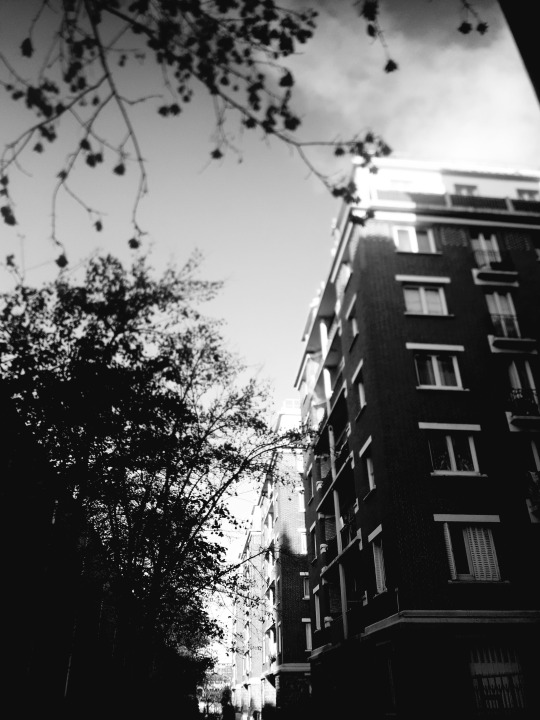
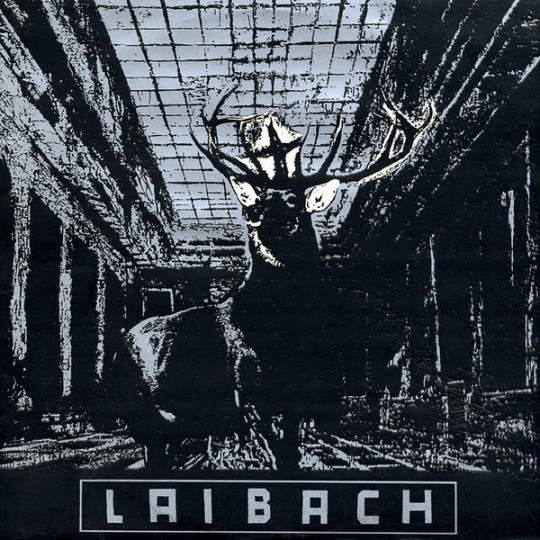

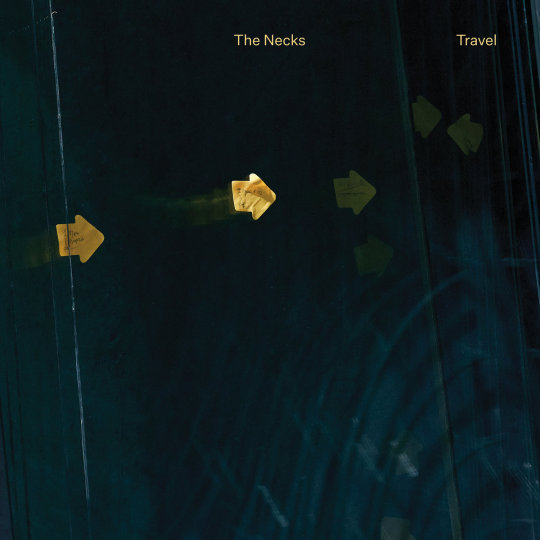
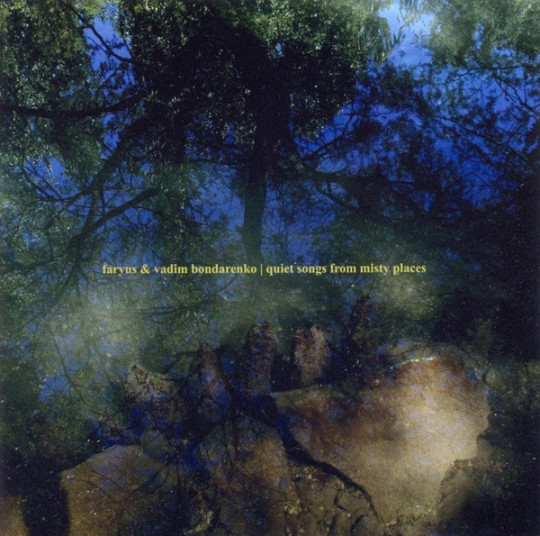


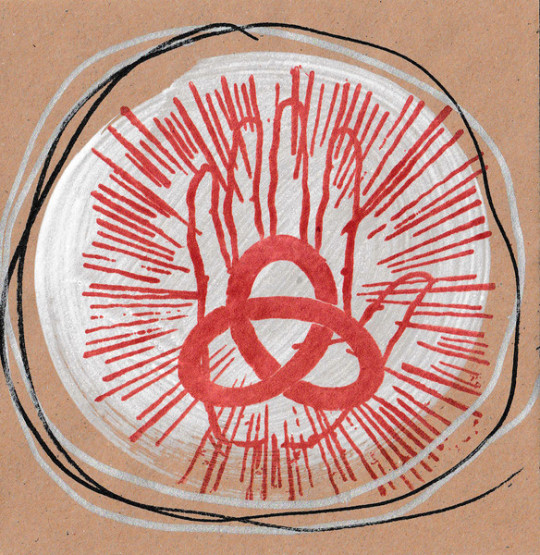

My albums selection for the next week:
David Lynch & Alan R. Splet – Eraserhead Original Soundtrack
Jzovce - Les Forêts- II
Laibach – Nova Akropola
Tetuzi Akiyama / Michel Henritzi - Shinjuku No Shadows
The Necks – Travel
Faryus & Vadim Bondarenko – Quiet Songs From Misty Places
Lizzy Welsh - The Taget Has Disappered
Jean-Jacques Birgé & Hélène Sage – Rendez-Vous
Swans - Is There Really A Mind
Zona Industriale – Requiem
#musical sugestion#musical selection#david lynch#alan r. splet#jzovce#laibach#michel henritzi#tetuzi akiyama#the necks#faryus#vadim bondarenko#lizzy welsh#jean-jacques birgé#helene sage#swans#zona industriale#experimental music#folk#folk rock#black metal
85 notes
·
View notes
Text
I once talked about reading gangster/mafia manga to improve my imagination and creativity skills, so I could write my Bonten fanfic and this is what I posted about back in August...
Turns out Ken Wakui sensei is also the writer of the "Shinjuku Swan" manga!!!! 😭😭😭


And I'm realizing that just now!!! What's wrong with me?!?!?! 😭😭😭
Anyway, you guys should go and check out this manga. It's actually really good and is considered one of the best gangster/mafia manga out there. Like if you search for the top 10 best gangster/mafia manga on Google, Shinjuku Swan's name will pop up for sure!!
#tokyo manji revengers#tokyo revengers#tr mikey#baji#tr draken#tokrev takemichi#matsuno chifuyu#tokrev kazutora#rindo haitani#izana kurokawa#baji keisuke#keisuke baji#kakucho#kokonoi hajime#inui seishu#rindou haitani#ran haitani#manjirou sano#manjiro sano#tokyo manji gang#ken ryuuguji#ken ryuguji#mitsuya takashi#taiju shiba#shinichirou sano#shinichiro sano#haruchiyo sanzu#shinjuku swan manga#ken wakui#bonten arc
38 notes
·
View notes
Text
Persona 5 IRL Stuff
Requested

The entry and exit to each floor of Mementos is based on the appearance of train stations, and the stamps you collect for Jose are seemingly the game's version of train stamps lol.
I'm not sure if this is still true, but train stamps were introduced to me as something that smaller kids will collect when they travel with their families, so it makes sense to me that the NPC associated with them is also a kid. As an adult tourist, I've never bothered with train stamps cause you really have to go out of your way to find some of them and when I'm at a train station my ass is trying to go somewhere lol. I suppose that even in real life, some of those stamp locations must feel like they're random spawns.
I have absolutely bothered with red shrine seals, though. Maybe Persona 6 will have the protagonist collecting those.

Ryuji takes you to a ramen restaurant in Ogikubo. Based on it being in Ogikubo and the appearance of the restaurant in-game, it's modeled after Marufuku Chinese Noodles near Ogikubo Station. The sign in-game just says "Chinese Noodles" without the store name. I'm not sure if this is a famous restaurant or maybe it's just one that Atlus employees like to eat at lol.

Ryuji also takes you to a monjayaki restaurant in Tsukishima during his Confidant. You go to Tsukishima specifically because Tsukishima has a line of restaurants called Monja Street that specializes in, you guessed it, monjayaki.

Akechi introduces you to a jazz bar in Kichijoji called Jazz Jin. The outside appearance seems to be based on Some Time which is also located in Kichijoji. Only the outside resembles what's in-game, though. The inside is different.
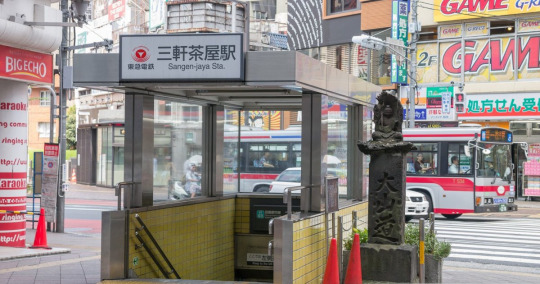
Yongenjaya isn't a real place in Tokyo, but it seems to be a renamed version of Sangenjaya - san means 3, yon means 4. I've not been to Sangenjaya, though I've heard that details like the laundromat, even down to the vending machine, looks nearly the same as it does in-game. (If you are interested in doing Persona 5 tourism around Tokyo, I've heard that the Sangenjaya locals do not appreciate Persona 5 tourism or related loitering in this area.)
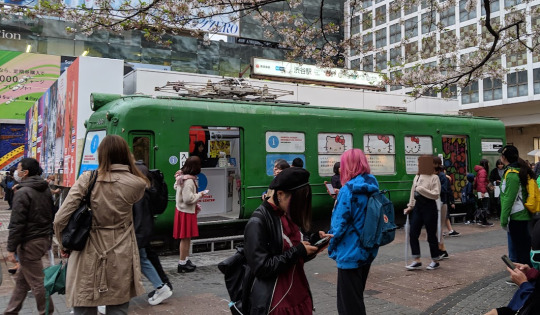
Shibuya Station is pretty much accurate with how it is IRL. The green train car that you visit Tora at has been moved since the game came out, but the dog statue of Hachiko (or Buchiko as its known in game) is there, the 1000 stairs you climb to get to the Ginza Line, etc, is also all accurate.

When you touch base with Ohya, you unlock Shinjuku. The movie theater in-game is called Cult 9, which is based on an actual movie theater in Shinjuku called Wald 9. The other areas in Shinjuku seem to be a condensed version of Kabukicho (or Kamurocho, if you've played Like a Dragon).

Futaba wants to go shopping in Akihabara and Nakano. Akihabara you've probably already heard about as Nerd Haven. She also talks about visiting Nakano, likely to go shopping at Nakano Broadway which is home to a bunch of Mandarake 2nd hand anime/etc goods stores.


The "huge pancake" that Morgana was talking about is how Tokyo Dome looks from the outside. The pancakes he's comparing it to are the thicc souffle-style fluffy jiggly pancakes that you can get at various restaurants. (Also probably what Akechi thinks of when he hears delicious pancakes lol.)
The other areas and things, I'm really not sure there's much to say about them.
Ann takes you to Harajuku cause she wanted to eat sweets (this is really relatable btw)
Meiji jingu is also real and located near Harajuku
The buffet Ann takes the guys to is the Marble Lounge, but I believe it's since been remodeled
There's multiple museums in Ueno
There's a Catholic church in west Kanda but afaik the inside looks different than in-game
Inokashira Park is real and has swan boats and stuff
Ikebukuro's planetarium is in Sunshine City Mall
Chinatown is real but it's much further than the map makes you think (it's in Yokohama)
Odaiba Seaside Park is another real location
Miura Beach is also real, way down south past Yokohama
Jimbocho is indeed where you'd go to buy books
etc etc etc
#persona 5#personal 5 royal#p5r#can't believe they made the country that persona takes place in a real country!!!
22 notes
·
View notes
Text
guess what? i've decided it's finally time to talk about the wonderful world of hanafuda, how that connects to the shinjuku reapers, and how from this information we can deduce what kubo's noise form is!
now that neo has been out for a while, this might be more common information, but i'll give a primer real quick. much like how the shibuya reapers in twewy have a theme for their noise forms (the zodiac), the shinjuku reapers have their own theme. and that theme is hanafuda! (and i can't give myself credit for this concept. i originally came across this idea here, iirc).
essentially, hanafuda are a type of playing cards. they have a long history of different forms and being used for a variety of games (including gambling). highly recommend looking that up if you're interested. in the modern day, hanafuda decks generally have 48 cards split into twelve suits (think like how western playing cards have suits). each suit corresponds to a month and has a variety of symbolism in the art connected to that. generally speaking, every suit is represented by a plant/flower. sometimes they have an animal on one of their cards too. that's why we're interested.
getting back to neo twewy, the shinjuku reapers don't necessarily have the hanafuda link hidden in their names, but instead in their birthdays.
for example, tsugumi's birthday is in january. the january hanafuda suit has a crane as its animal. shiba's birthday is in june. the june suit has a card with butterflies, etc. wondering where ayano got an iris noise from? her name means iris and every card in the may suit has irises on it. even characters who don't get a noise form in-game have some kind of connection (e.g., kaie and hishima both have name references to things on their birthday month cards).
so. that was a VERY elaborate prelude to present my hypothesis: kubo's noise form is a goose.
his (supposed) birthday is in august, and the hanafuda suit for august is quite fun for a number of reasons. most importantly: THERE'S GEESE ON IT.
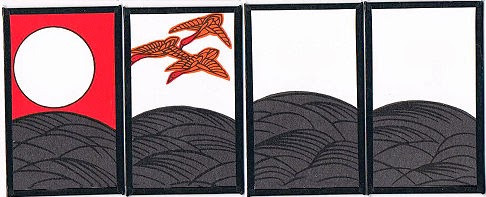
in fact, i'd like to say there's some interesting symbolism going on, at least for the most colorful cards (a full moon, and flying geese). august is the card suit associated with the changing of seasons to fall, so naturally there's a harvest moon. we are going to choose to ignore the fact it makes the sky an ominous red color in this depiction. or the linguistic implications of a harvest moon. and how haz has the kanji for 'moon' hidden in his name.... the rolling hills depicted are supposed to be fields of susuki grass (one of the seven flowers of autumn. the more you know! but we don't care about that here). the geese are geese. but more specifically, they are indeed migrating!
i've seen at least one site suggest the birds in question are meant to be swan geese, which used to fly to japan for the winter. and i am inclined to think that's an accurate choice.
speaking of birds. does the color scheme look familiar by any chance?


SO. whether on accident or not, kubo matches the geese. also i think it's a really cute coincidence (if it is one) to pick a migratory bird to go with a guy who showed up, ingratiated himself into a team, and would've just picked up and left if all had gone according to plan.
conclusion: i'm gonna let kubo have one thing in common with his fake buddies and get assigned Goose by the hanafuda noise form sorter.
it's a beautiful day in shibuya, and you are a horrible goose.
3 notes
·
View notes
Note
HES A FAMOUS ACTOR AND VERY TALENTED DJJWJWNS IM EXCITED
Most ppl know him as Chishiya from Alice in Borderland
His father stared in the live action version of Shinjuku Swan, another one of Wakui’s works
-no.1
Ohhh well if he's that famous then I get the excitement!
#side note but is Alice in borderland good???#it's something i scroll past a lot on netflix and I'm always like I'll have to check that out one day but never have#jojosquad
15 notes
·
View notes
Text

@hackereaped : I always lived in my head

in the fragrant confines of kaie's shop , nested in incense & old books , THERE IS BALMY SPRING SUNLIGHT - not through the windows , but spilling outwards from the soft-spoken girl before him . hishima takes in her warmth & words alike with his typical unaffectedness , his emotionless facade perched on one of kaie's weathered velvet wing chairs running counter to the SUBTLE DIP OF HIS SHOULDERS at such unfiltered genuinity . she couldn't sour his mood more than whatever kaie deemed important enough to message him about , repeatedly , until even hishima could not ignore the rising notification count , & so the distraction is a welcomed one .
" i see . " he intones with a deliberateness that seems to ponder her even after his acknowledgement . " solitude is a familiar sanctuary . "
perhaps he'll allow himself to linger here a while , in this brief refuge amid the relentless waves of self-aggrandisement & deceptions that mark SHINJUKU & SHIBUYA'S SHARED SWAN-SONG .

#hackereaped#[ → ⠀in. ]*#GENTLE RHYME#RHYME WHOM I LOVE WITH MY WHOLE HEART & SOUL#THIS I PROMISE : HISHIMA WILL COME TO ADORE YOU#AS HE ADORES ANYONE WHO MANAGES TO CAPTURE THE SUN IN THEIR TEETH#the camera pans to me & i am sobbing as nagi sobs over minamimoto : rhyhyeehyyhehyheheyyhyh
1 note
·
View note
Text
gonna watch rewatch shinjuku swan but only the hayama parts................so basically im gonna watch five minutes of shinjuku swan ✌️
#his look............was a revelation#light blue-silver double-breasted suit. slicked back hair with hot pink dip dye ends.#who else is giving it to us like that??? who else's pů$$y pops so severely???
5 notes
·
View notes
Text
no seriously i need some fucked up shit to read all i have rn is like, shinjuku swan ryuko and freesia on my backlog i guess among a sea of shoujo romance and bl/gl
0 notes
Text
Where to Watch Tokyo Revengers?
Tokyo Revengers, as you may have probably guessed from the name, is a popular Japanese Manga series originally written by Ken Wakui, a manga artist who created Shinjuku Swan. The manga series was first launched in 2017 and became a sought-after series amongst manga fans. Since then there have been various adaptations of Tokyo Revengers with each format gaining the same love from viewers. Keep reading to learn more about the series and where you can watch Tokyo Revengers in different formats.

Let’s first dive into the history of the series before we learn more about where you can access it. So Watch Tokyo Revengers?
After the launch of Tokyo Revengers, the initial serialization of the manga series began in March 2017 and lasted till November 2022 in Weekly Shonen Magazine by Kodansha. By the end of November 2022, the chapters were collected in 30 tankobon volumes in terms of book volumes. Since the series is available in multiple formats, it has gained huge popularity since it caters to the needs of all types of anime lovers; some prefer to enjoy anime in book format while some may have a preference toward the digital form.
0 notes
